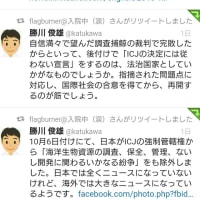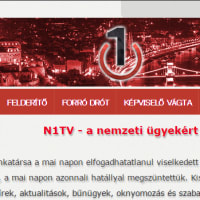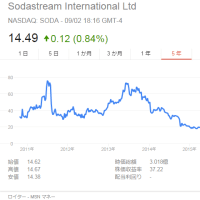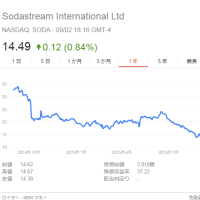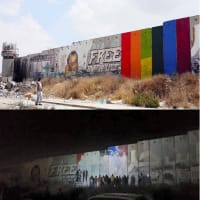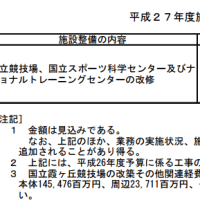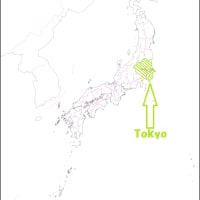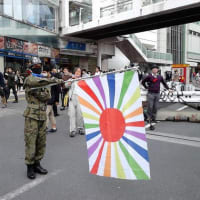今回は、エルサルバドルで行われている『エルサルバドルにおける修復的司法の適用を求める国際裁判』(International Restorative Justice Tribunal in El Salvador:Tribunal Internacional para la Aplicación de la Justicia Restaurativa en El Salvador)という会議なんだか委員会に関するメモ。
エルサルバドルでは、1980年~1992年にかけて内戦が行われたんだよな。
原因は、(米国の支援を受けて)市民への弾圧を繰り広げてきた軍事政権に対し ファラブンド・マルティ民族解放戦線(FMLN:el Frente Farabundo Martí para la Liberación Nacional)などが武装闘争を始めたことなのだが・・・。
この辺は以下参照(手抜き)
・エルサルバドル革命史:第2部(2000年3月16日 ラテンアメリカの歴史)
今年1月16日に行われた(内戦終結に関する)和平合意締結 20年を祝う式典で マウリシオ・フネス(Mauricio FUNES) エルサルバドル大統領は、1981年12月に当時の軍部が エル・モソテ(El Mozote)で行った虐殺について謝罪した。
この辺は以下参照(手抜き)
・El Salvador head apologises for 1981 El Mozote massacre(2012年1月17日 bbc.co.uk)
・Military Commission to Investigate Army Abuses(2012年2月23日 IPSNEWS)
で、問題の『(中略)国際裁判』という会議だか委員会。
元は、ホセ・シメオン・カニャース中央アメリカ大学(Universidad Centroamericana "José Simeón Cañas")にある 人権問題研究センター(Instituo de Derechos Humanos de la UCA:IDHUCA)が企画してるもの。
2009年に第1回の会議だか委員会が行われ、今年は 3月21日~23日に 4回目が開催された。
・Tribunal Internacional para la Aplicación de la Justicia Restaurativa en El Salvador(uca.edu.sv;スペイン語)
過去3回の会議だか委員会では、内戦時に起きた虐殺に関する真相究明を行ってる模様・・・。
で、今年の会議だか委員会でも、内戦時に起きた虐殺に関する真相究明を行っていた。
もっとも、世に知られて「いない」虐殺のほうが圧倒的に多いのだが・・・。
・Salvadoran Civil War Survivors Demand Restorative Justice(2012年3月26日 IPSNEWS)
以下、2012年3月26日分 IPSNEWS『Salvadoran Civil War~』から中盤部分を(略)
ただし、[]内は俺が追加した補足。
---- 以下引用 ----
"We want to create a space for victims to speak out and be heard," José Ramón Juániz, president of Lawyers of the World, an NGO based in Valencia, Spain and a member of the bench at the Tecoluca[サン・ヴィセンテ(San Vicente)県にある町のこと] tribunal, told IPS.
Many people who took the stand as witnesses had never described their experiences in public before.
(中略)
Unlike the 1981 massacre in El Mozote, for example, that drew widespread attention because some 1,000 people had been killed, many of the people testifying now in Tecoluca have not even been recognised as victims, because their cases have never reached the justice system.
(以下略)
---- 引用以上 ----
虐殺が司法の世界で扱われてないために虐殺の被害者だと認定されない、か。
これって、どこかの国でも見たような気がしないでもない・・・。
で、この会議だか委員会が採用している『修復的司法』では、加害者側の参加も重要になってくる。
が、1993年に制定された(内戦で虐殺に関与した兵士とか幹部に対する)恩赦法がそれを邪魔してるという。
以下、2012年3月26日分 IPSNEWS『Salvadoran Civil War~』からその部分を(略
---- 以下引用 ----
(中略)
The concept of restorative justice calls for the participation not only of the victims, but of the perpetrators, who, freed from the fear of prosecution, can admit to their crimes.
The goal is to bring about forgiveness by the survivors, and reconciliation.
"Let the killers come and ask us for forgiveness;" said Juan Cornelio Chicas, a 58-year-old survivor of the 1981 massacre in Junquillo in the northern province of Morazán.
"I am willing to forgive them, but I want to hear them say, 'Look, I killed your children.' I will never forget my children," he said with tears in his eyes.
About 70 people, including 10 children, were killed in Junquillo.
But those accused of the murders did not attend the court sessions in Tecoluca, not even the ones identified by the Truth Commission, like Captain Carlos Medina Garay, who was one of the officers commanding the military operation that ended in the Junquillo massacre.
Military personnel involved in human rights abuses have escaped justice thanks to the 1993 amnesty law.
"Unfortunately, the perpetrators are not willing to testify," Proner told IPS.
In spite of constant calls from local and international human rights organisations for the repeal of the amnesty law, the country's politicians and justice authorities have kept it in force.
Salvadoran President Mauricio Funes of the FMLN, who took office in 2009, has refused to even open a debate on the possibility of revoking the amnesty law, in spite of having apologised in January on behalf of the state for the victims of the El Mozote massacre.
"This is a government that apologises to the victims while forgiving and protecting the perpetrators," Benjamín Cuéllar, the head of IDHUCA, told IPS.
(以下略)
---- 引用以上 ----
なんだろうな。
フネス大統領が恩赦法の撤廃に手をつけない(られない?)のは、元軍人や(フネス大統領の出身政党である)FMLN と対立する政治勢力などからの反発を避けるためなんだろうか?
それと、FMLN が国会で単独過半数の議席を確保してないってのもありそうだが・・・。
↓今年3月にエルサルバドルで行われた総選挙の結果と分析(手抜き)
・エルサルバドル議会選に思う(2012年3月15日OKI LatinReport)
・Some post-election analysis(2012年3月14日 Tim's El Salvador Blog)
内戦中 FMLN も虐殺に関与したなんて言われたくない、なんてのが フネス大統領が恩赦法撤廃に反対する理由だったら笑えない。
まぁ、FMLN が何をしたかについて問われるのは避けられない道なのだが・・・。
エルサルバドルでは、1980年~1992年にかけて内戦が行われたんだよな。
原因は、(米国の支援を受けて)市民への弾圧を繰り広げてきた軍事政権に対し ファラブンド・マルティ民族解放戦線(FMLN:el Frente Farabundo Martí para la Liberación Nacional)などが武装闘争を始めたことなのだが・・・。
この辺は以下参照(手抜き)
・エルサルバドル革命史:第2部(2000年3月16日 ラテンアメリカの歴史)
今年1月16日に行われた(内戦終結に関する)和平合意締結 20年を祝う式典で マウリシオ・フネス(Mauricio FUNES) エルサルバドル大統領は、1981年12月に当時の軍部が エル・モソテ(El Mozote)で行った虐殺について謝罪した。
この辺は以下参照(手抜き)
・El Salvador head apologises for 1981 El Mozote massacre(2012年1月17日 bbc.co.uk)
・Military Commission to Investigate Army Abuses(2012年2月23日 IPSNEWS)
で、問題の『(中略)国際裁判』という会議だか委員会。
元は、ホセ・シメオン・カニャース中央アメリカ大学(Universidad Centroamericana "José Simeón Cañas")にある 人権問題研究センター(Instituo de Derechos Humanos de la UCA:IDHUCA)が企画してるもの。
2009年に第1回の会議だか委員会が行われ、今年は 3月21日~23日に 4回目が開催された。
・Tribunal Internacional para la Aplicación de la Justicia Restaurativa en El Salvador(uca.edu.sv;スペイン語)
過去3回の会議だか委員会では、内戦時に起きた虐殺に関する真相究明を行ってる模様・・・。
で、今年の会議だか委員会でも、内戦時に起きた虐殺に関する真相究明を行っていた。
もっとも、世に知られて「いない」虐殺のほうが圧倒的に多いのだが・・・。
・Salvadoran Civil War Survivors Demand Restorative Justice(2012年3月26日 IPSNEWS)
以下、2012年3月26日分 IPSNEWS『Salvadoran Civil War~』から中盤部分を(略)
ただし、[]内は俺が追加した補足。
---- 以下引用 ----
"We want to create a space for victims to speak out and be heard," José Ramón Juániz, president of Lawyers of the World, an NGO based in Valencia, Spain and a member of the bench at the Tecoluca[サン・ヴィセンテ(San Vicente)県にある町のこと] tribunal, told IPS.
Many people who took the stand as witnesses had never described their experiences in public before.
(中略)
Unlike the 1981 massacre in El Mozote, for example, that drew widespread attention because some 1,000 people had been killed, many of the people testifying now in Tecoluca have not even been recognised as victims, because their cases have never reached the justice system.
(以下略)
---- 引用以上 ----
虐殺が司法の世界で扱われてないために虐殺の被害者だと認定されない、か。
これって、どこかの国でも見たような気がしないでもない・・・。
で、この会議だか委員会が採用している『修復的司法』では、加害者側の参加も重要になってくる。
が、1993年に制定された(内戦で虐殺に関与した兵士とか幹部に対する)恩赦法がそれを邪魔してるという。
以下、2012年3月26日分 IPSNEWS『Salvadoran Civil War~』からその部分を(略
---- 以下引用 ----
(中略)
The concept of restorative justice calls for the participation not only of the victims, but of the perpetrators, who, freed from the fear of prosecution, can admit to their crimes.
The goal is to bring about forgiveness by the survivors, and reconciliation.
"Let the killers come and ask us for forgiveness;" said Juan Cornelio Chicas, a 58-year-old survivor of the 1981 massacre in Junquillo in the northern province of Morazán.
"I am willing to forgive them, but I want to hear them say, 'Look, I killed your children.' I will never forget my children," he said with tears in his eyes.
About 70 people, including 10 children, were killed in Junquillo.
But those accused of the murders did not attend the court sessions in Tecoluca, not even the ones identified by the Truth Commission, like Captain Carlos Medina Garay, who was one of the officers commanding the military operation that ended in the Junquillo massacre.
Military personnel involved in human rights abuses have escaped justice thanks to the 1993 amnesty law.
"Unfortunately, the perpetrators are not willing to testify," Proner told IPS.
In spite of constant calls from local and international human rights organisations for the repeal of the amnesty law, the country's politicians and justice authorities have kept it in force.
Salvadoran President Mauricio Funes of the FMLN, who took office in 2009, has refused to even open a debate on the possibility of revoking the amnesty law, in spite of having apologised in January on behalf of the state for the victims of the El Mozote massacre.
"This is a government that apologises to the victims while forgiving and protecting the perpetrators," Benjamín Cuéllar, the head of IDHUCA, told IPS.
(以下略)
---- 引用以上 ----
なんだろうな。
フネス大統領が恩赦法の撤廃に手をつけない(られない?)のは、元軍人や(フネス大統領の出身政党である)FMLN と対立する政治勢力などからの反発を避けるためなんだろうか?
それと、FMLN が国会で単独過半数の議席を確保してないってのもありそうだが・・・。
↓今年3月にエルサルバドルで行われた総選挙の結果と分析(手抜き)
・エルサルバドル議会選に思う(2012年3月15日OKI LatinReport)
・Some post-election analysis(2012年3月14日 Tim's El Salvador Blog)
内戦中 FMLN も虐殺に関与したなんて言われたくない、なんてのが フネス大統領が恩赦法撤廃に反対する理由だったら笑えない。
まぁ、FMLN が何をしたかについて問われるのは避けられない道なのだが・・・。











